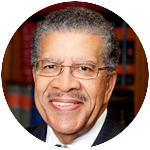
Gerald T. Davis
I’ve wrestled with how to begin this first in a series of articles on racism and racial healing that I will write for CatholicPhilly.com. I was over-thinking the subject because it is important in itself and important to me personally.
Critical to this, is that I want you to become an integral part of the healing process. I want to be inclusive and not unwittingly drive you away by how I couch messages.
I know this is “tough stuff.” It’s intimidating, a third rail not to be touched. But in my opinion we have little choice but to engage it.
Next, let me say how privileged and honored I am to serve on the Archbishop’s Commission on Racial Healing. It is sacred work.
Racism is a sin and must be crushed, eradicated.
Some may say changing the trajectory of the sin of racism is “a bridge too far,” and it is beyond hope.
It is true that racial hatred has been with us forever.
But that doesn’t mean we (you and me) shouldn’t try to fight this evil. We must. Where we can, we should at least make a dent because dents add up. Our children and our children’s children deserve our “putting in the work.”
I sincerely believe we can eradicate racism because foundational to our common humanity is hope. And as Catholics, it is who we are or at least should be. Our hope is based on faith.
At the same time, I’m not out of touch with reality. As Archbishop Pérez has reminded the commission, “The fight against racism is a marathon, it is not a race.” Also true.
I’m sure some of my Catholic sisters and brothers may feel that a commission is not needed. They may push back.
The archbishop said that the commission must be representative of our now more diverse faith community, and we are.
My fellow commission members are thoughtful, passionate and most able. They strengthen my resolve.
We will all have to bring our A-game to the fight. Make no mistake about that. Anyone watching the nightly news can see that there is a deeply alarming divide between how many White people view issues of race and how differently many Black people see the same situation. Black Lives Matter (BLM) comes to mind.
Also in my opinion is the reality that our White sisters and brothers, (like all of us) come to Mass for “spiritual healing.” The difference, I believe, is that White parishioners don’t want to talk about racism and racial healing at Mass. That narrative is uncomfortable and off-putting to them.
Racial healing or conversations on race are not top of mind to White people. On the other hand, for Black people, race is never too far below the surface … furthering the divide.
So going forward, I will share my thoughts on racial healing for your consideration, concurrence or challenge, to put in words my feelings about racial healing through story telling.
This space is a chance to talk openly about racism and the need for racial healing, and to have rigorous conversation. As we do in our meetings of the commission, “To say the quiet out loud.”
It is a space to acknowledge that words matter, tone matters, and civility matters. We must listen with empathy and respect.
What this space is not is a space for shaming, blaming, victimization, accusations, or pity-parties. It is not to put anyone on guilt trips, put them “on trial” or express grievance. It is to talk.
I take it as my moral responsibility to talk about racism and racial healing. Do we all have the same moral responsibility? I think we do. It should not just fall on the commission or on my shoulders to do that. No, as you see on the back of some of the helmets of our much revered Philadelphia Eagles: “It takes all of us.”
As a senior African American man, who has lived a long time and seen much, conversations about race are existential.
With our Judeo-Christian values, we must be outraged by a massacre of worshipers at a mosque in New Zealand, a synagogue in Pittsburgh, Black shoppers at a Buffalo supermarket, or a senior Asian woman being assaulted while just walking down the street and being blamed for bringing the pandemic to our shores.
Courageous conversations on racial matters are needed with honest and respectful exchange of views. In so doing, we must draw on our personal life experiences and “don’t make the perfect, the enemy of the good.” Just do the best we can. Don’t be “frozen in fear.”
Sadly, we amplify the sin of racism through our silence. So we must give voice to the work for justice, and home is the right place to start.
I suggest that we as Catholics (and all people of good will regardless of faith traditions) should have these conversations on racial healing where we worship.
Other stories and themes that I’ll speak to going forward are: what is my responsibility on race matters; how harrowing experiences shape you; working through baggage; disconnect on the Black Lives Matter movement; the browning of America; “color” blindness; the symbolism and brilliance of last May’s Unity Concert; doing the best you can when dealing with race; attempting to make people feel less than; Black people hold their breath when hideous acts take place; White privilege; White supremacy; fear; replacement theory; and so forth.
You can start tonight around the dinner table. Why wait? It will take courage, personal commitment, and leadership.
Then we can begin conversations in the pews. We encounter one another; we engage in formation; then we act in justice.
***
Gerald T. Davis is a member of the Archbishop’s Commission on Racial Healing.



Share this story